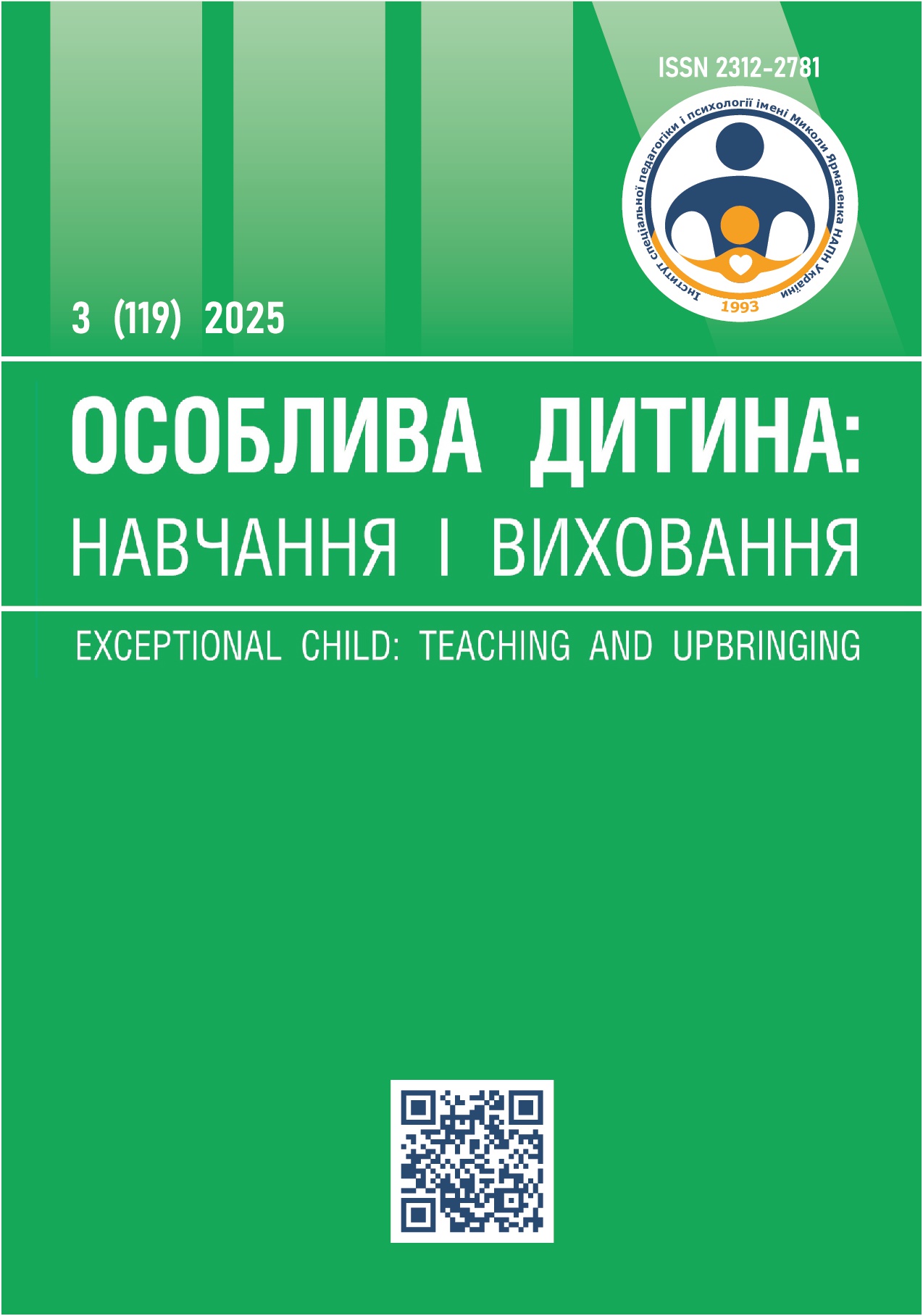COMPLEX METHODS OF COGNITIVE FUNCTION CORRECTION IN VISUALLY IMPAIRED CHILDREN WITH CEREBRAL PALSY
Abstract
The article analyzes the complex developmental defects of children with cerebral palsy, which are manifested in impaired motor function, impaired eye and auditory analyzer function, cognitive development of the child, his emotional and volitional sphere, and higher mental functions. Special attention was paid to the development of grapho-motor skills, memory, attention, gnosis, praxis, thinking, and the formation of mathematical representations. A cognitive survey of visually impaired children with cerebral palsy was conducted by combining several techniques. Tests were used for the readiness of children for school, boards of Séguin forms, pyramids, nesting dolls, voluminous boxes, cards with different textures and voluminous figures and buttons, wooden puzzles – pictures, voluminous puzzles - squares. The study took into account the features of the emotional-volitional sphere of the child, an adapted Semago test was used to evaluate the memory of the child. The article analyzes the results of the study at the beginning of work with visually impaired children with cerebral palsy, which showed that 70% of children have a very low level of cognitive development, low or no graphomotor skills, there were significant violations of coordination of movements, orientation in space. A comprehensive individual program for the correction of cognitive functions in visually impaired children with cerebral palsy is described, which included the use of Su-Jok therapy, kinesiological exercises, sand games, plasticine modeling, didactic games for modeling with sticks and geometric figures, classes on simulators «Lay out sticks by height», «Collect wheels», and collecting puzzles for the visually impaired. The analysis of the pedagogical experiment showed positive results. Conclusions. The integrated use of correction methods for visually impaired children, children with cerebral palsy and children with cognitive problems with an individual approach to each child gives a significant improvement in the cognitive development of visually impaired children with cerebral palsy.
References
Особлива дитина: навчання і виховання. №3(119). 2025. с. 192-207


